
How Trump Could Push Japan, S Korea To Go Nuclear
The Japanese pronunciation of the former president's surname is Toranpu. I recently had an extended stay in Japan, during which the number one topic raised in my conversations with Japanese policymakers was moshi-tora –“What if Trump?” – the catchphrase for pondering Japan's fate if Trump returns to the White House.
Many dangers loomed in the minds of Japan's foreign policy elite, including:
- a de facto surrender to Russia in the Ukraine war, emboldening China and even North Korea; imposition of a 60% tariff on all Chinese goods, or even broader tariffs targeting Japan and Europe; demands that Japan, and other allies, pay massive amounts to the US to keep American forces stationed abroad.
All of those“America First” moves are perfectly plausible, even likely, given Trump's past actions and current proclamations. Still, Japanese policymakers claimed to be confident that they could somehow manage Trump, following the model of Shinzo Abe – flatter him, pay him off and cultivate ties with his advisors.
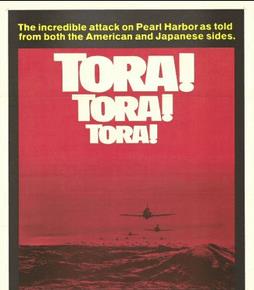
Tora is not only a shortened version of the Trump name as it's pronounced in Japanese, Toranpu. A homonym, also an abbreviation, gained fame when it was used in the title of the 1970 movie 'Tora! Tora! Tora!' That was the code used in 1941 to signal the commencement of the 'lightning attack' – totsugeki raigeki – on Pearl Harbor. Photo: Wikipedia
“As during the first Trump presidency, if we have a good understanding in advance with the defense and national security team without Trump, that will help,” a former senior Japanese foreign ministry official told me.
The Japanese government will move quickly to press the US on the importance of American bases in Japan, believing that Trump's focus on a confrontation with China will depend in part on keeping the security alliance intact.
Even if he seeks to withdraw forces from Japan, he won't withdraw all, perhaps just 30-40%, a senior foreign policy expert who advises current Prime Minister Fumio Kishida said in a private conversation.
Across the Tsushima Strait, South Korean officials also insist that a Trump return to power can somehow be managed without endangering the alliance on which their security depends. But there are also deep worries that Trump will move quickly to withdraw US forces based in Korea, triggered by Seoul's failure to yield to unreachable demands for payments.
These fears were reinvigorated by the comments Trump made in a recent extended interview with Time Magazine about his plans for a second term.
“We have 40,000 troops [in South Korea], and in a somewhat precarious position,” Trump said, overstating the actual level of forces (28,500) while restating his demand that the Koreans“step up and pay.”
This is not just a gangster-like extortion of protection money.“Why would we defend somebody?” he told Time.“We're talking about a very wealthy country.”
South Korean President Yoon Suk Yeol, in his recent press conference following his party's defeat in the National Assembly elections, artfully avoided comment on Trump's remarks. He expressed confidence in the ongoing strength of the alliance relationship.
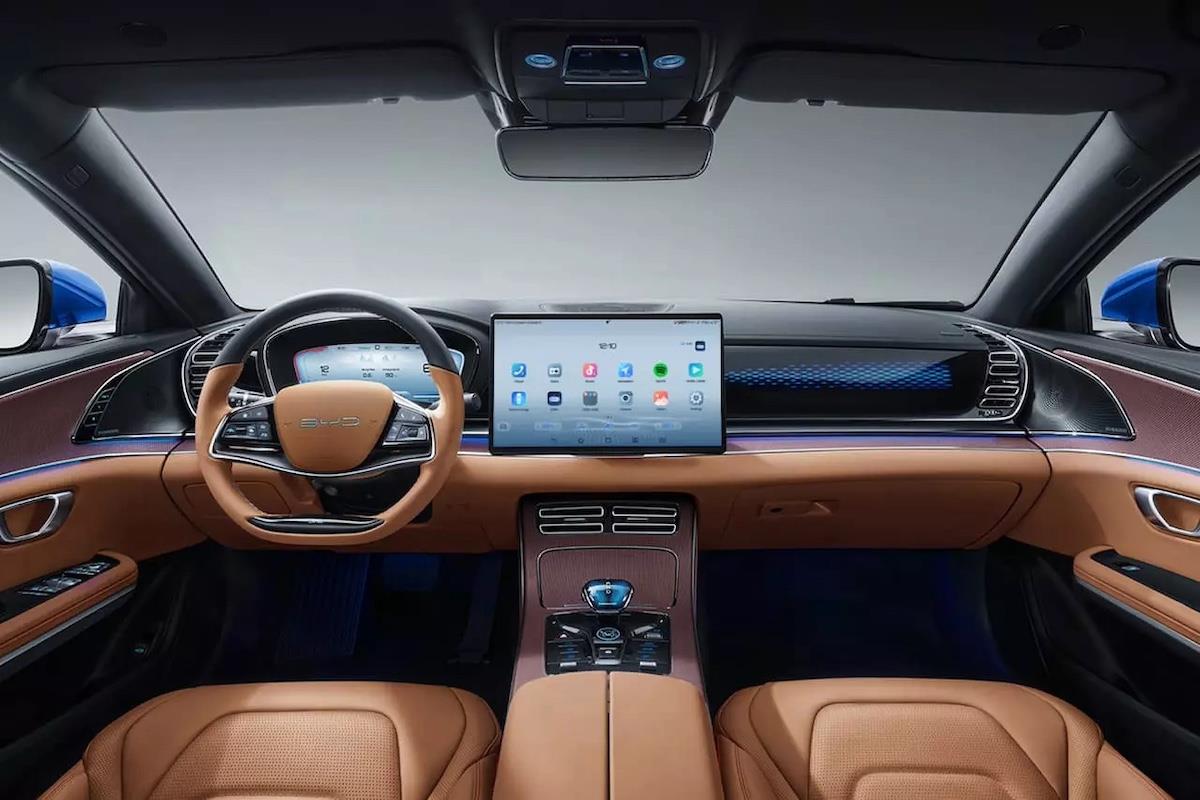
Cargo cult: Why America cannot have nice things
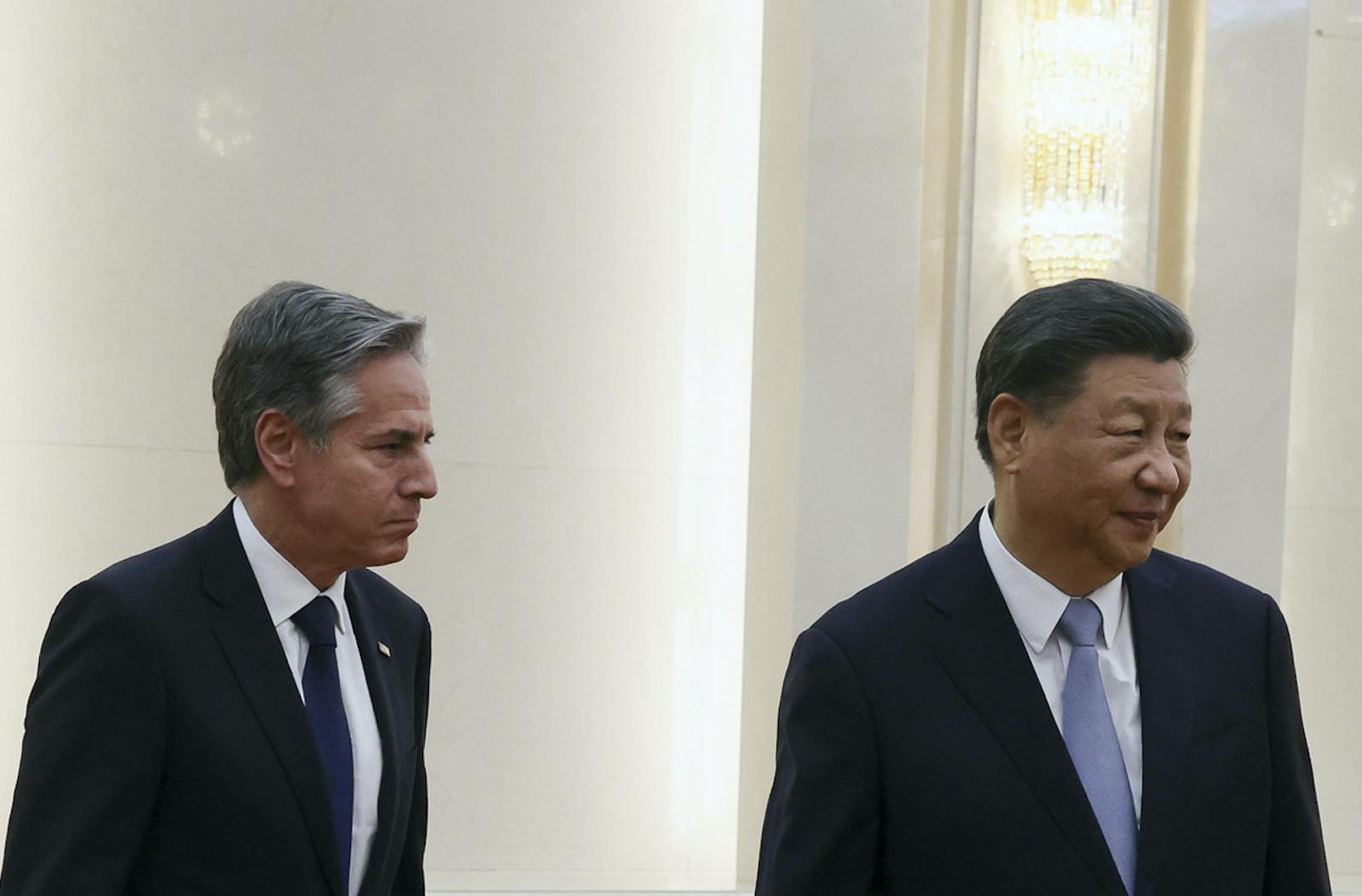
Who's to blame for losing Ukraine? China, of course
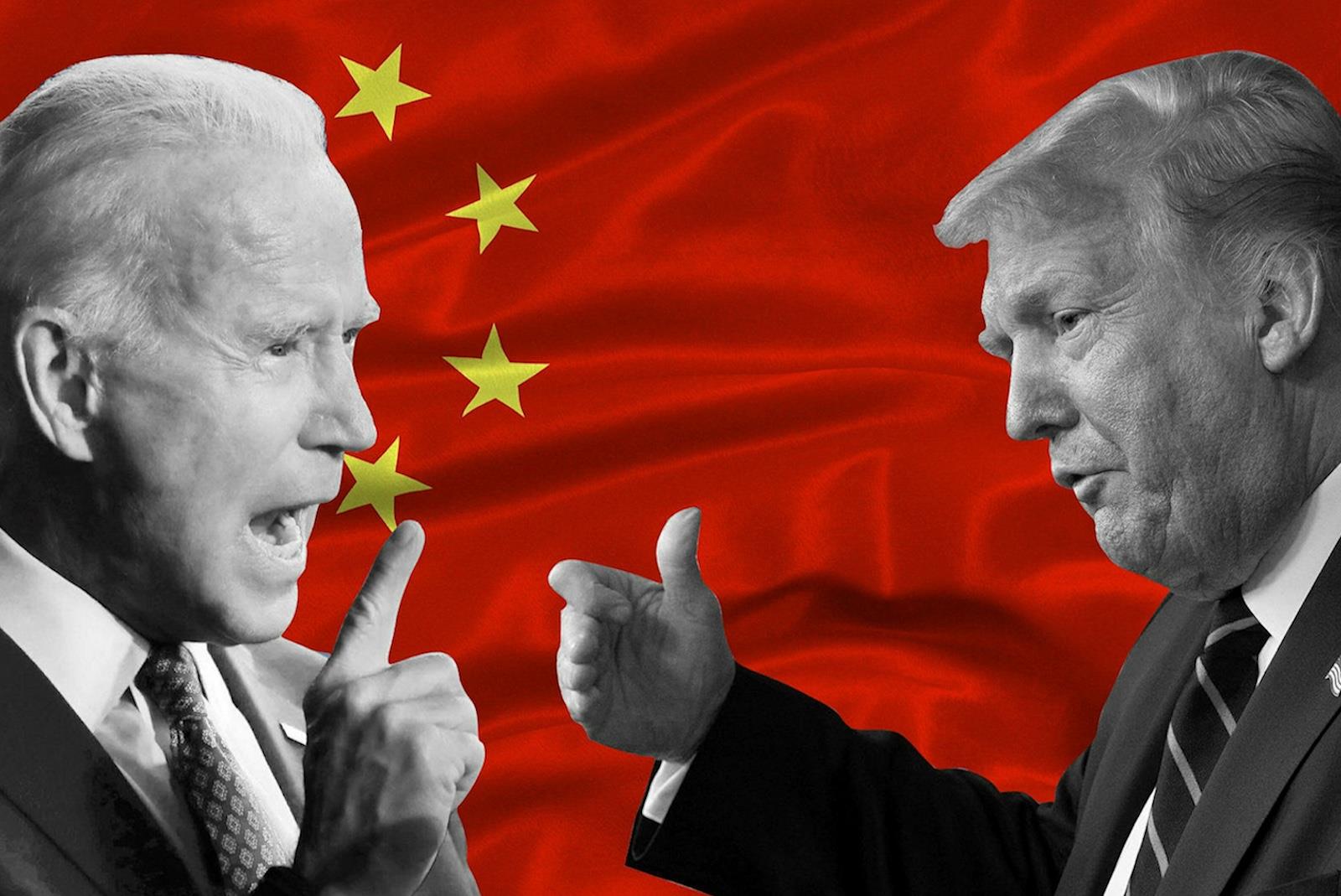
Biden, Trump China tariffs draw on old, losing playbook
But Trump's plans for his second term regarding US forces were set long ago, during his first presidential experiment. Former Trump national security advisor John Bolton in his memoir provided detailed accounts of“Trump's relentless desire to withdraw US military assets from the Korean Peninsula” accompanied by the former president's unquenched thirst for – and firm belief that he could make – a grand peace deal with North Korea's Kim Jong Un.
“I feared Trump's ultimate threat – withdrawing our troops from any country not paying what he deemed to be an adequate amount – was real in South Korea's case,” Bolton wrote after leaving office.
Former Trump Defense Secretary Mark Esper offers his own account of his repeated, and partially successful, efforts to block Trump from withdrawing troops. As he wrote:
“I became very uneasy when Trump talked about the need to pull all US forces completely out of Korea,” Esper wrote.
The former defense secretary recounted how he and then-Secretary of State Mike Pompeo suggested to Trump that he make that a second-term priority.
“This placated him,” Esper wrote.“Trump responded with 'Yeah, yeah, second term,' as a Cheshire Cat smile came across his face.”
Former Trump defense official Eldridge Colby, widely considered a candidate for a senior position in a second administration, has been giving interviews making it clear that this game plan still is intact.
Colby told the Yonhap news agency in an interview published on May 7 that the US had to give priority to confronting China and that North Korea was primarily a problem for South Korea to deal with.
Elbridge Colby. Photo: Screenshot / Facebook
“South Korea is going to have to take primary, essentially overwhelming responsibility for its own self-defense against North Korea because we don't have a military that can fight North Korea and then be ready to fight China,” Colby said.
“The fundamental fact is that North Korea is not a primary threat to the US. It would not be rational to lose multiple American cities to just deal with North Korea. That's a different calculation for South Korea.”
Colby, echoing remarks made previously by Trump, indicated that the US should accept, if not support, the nuclear option for South Korea, especially since the US would no longer offer its nuclear umbrella.
“It would be self-defeating and foolish for us to simultaneously not provide South Korea with a viable defense umbrella and then threaten to sanction it when it decides with us to take measures that provide for security in the face of a tremendous nuclear buildup by North Korea and China,” he told Yonhap.
What will South Korea do if Trump follows through on his plans? The answer is now provided in an important study just published by the Center for Strategic and International Studies think tank in Washington.
Entitled“Breaking Bad: South Korea's Nuclear Option ,” and authored by a former national security official and distinguished Korea expert Victor Cha, the study is based on a detailed poll of over 1,000 strategic elites in South Korea, conducted between January and March of this year.
On the good news side, the poll offers a clear refutation of the rather superficial idea, based on somewhat faulty polling, that more than two-thirds of Koreans favor the nuclear option.
As the study shows, those polls ask a simple question, yes or no, about support for the nuclear option. The polls never ask if Koreans would support such a path if it meant endangering the alliance with the US or would lead to South Korea's international condemnation.
Cha's poll goes further with elites who are better informed about the consequences of going nuclear and finds that two-thirds do not favor nuclearization, mainly because of the potential international reaction and damage to the US alliance. The opposition to the nuclear option is non-partisan, embraced by both conservative and progressive elites.
There was a very different response, however, when the poll asked elites about how they would respond to a return to the America First policy – a shift in which the US would denigrate its allies and decouple, specifically withdrawing American ground troops.
In that case, more than half of those who favored the non-nuclear option would now support nuclear weapons development. They would favor an autonomous nuclear capability over the option of sharing nuclear weapons with the US, by a two-to-one margin.
“Any way you look at it, if Trump wins and he is decoupling, you are going to get this huge shift in elite opinion to go nuclear, and a public already in that camp,” Cha told this writer.“It means it could happen very quickly. You wouldn't have to have a national discussion and build public opinion.”
There is a historical parallel to the present moment. In the early 1970s, in response to the US withdrawal of one of two infantry divisions from South Korea and the defeat in the Vietnam War, the South Korean government of Park Chung-hee ordered a secret program to develop nuclear weapons.
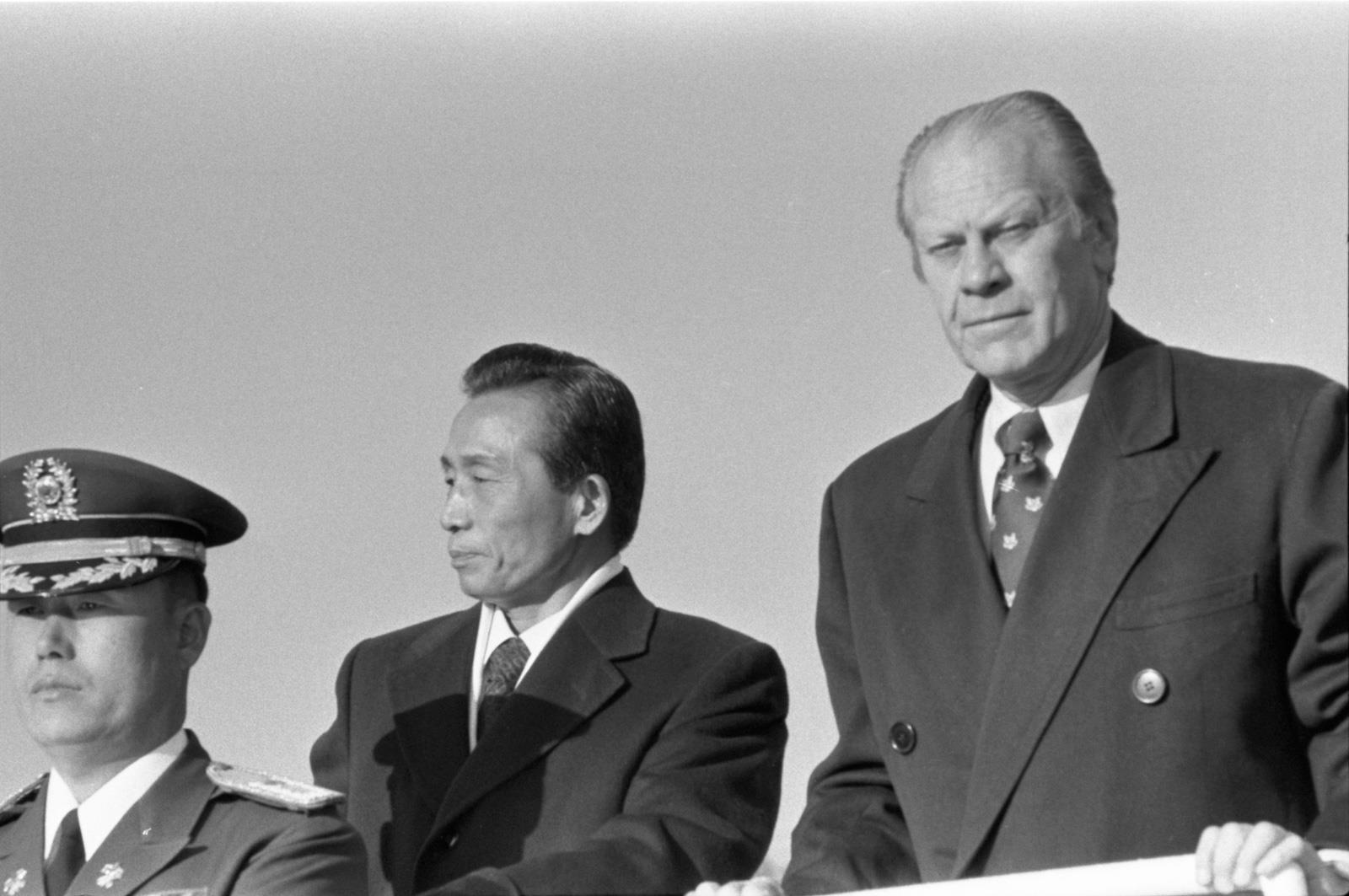
President Gerald R. Ford and South Korean“President for Life” Park Chung-hee at the arrival ceremony for Ford in Seoul on November 22, 1974. Before Ford's visit, US intelligence had been learning about South Korea's secret nuclear program. Photo: Gerald R Ford Library

Sign up for one of our free newsletters
- The Daily ReportStart your day right with Asia Times' top stories AT Weekly ReportA weekly roundup of Asia Times' most-read stories
It was uncovered by American intelligence, though policymakers in Washington were initially skeptical about how serious it might be. In the end, only tough American pressure, including blocking the sale of French and Canadian nuclear technology, halted the program.
What would it mean for Japan if South Korea went nuclear? Every Japanese foreign policy maker that this writer spoke to rejected, rather emphatically, the idea that Japan would or could develop nuclear weapons as a response to Trump's return to power.
A senior figure at the conservative daily newspaper Yomiuri Shimbun did not hesitate to reject the nuclear option, regarding it as not only politically impossible but antithetical to postwar Japanese policy.
But that conviction weakened when asked about how Japan might respond if South Korea headed down that road.“If South Korea has nuclear weapons, Japan will surely have them,” the prime minister's advisor, who had recently returned from a visit to Korea, told me.
Another senior foreign policy maker, who has served as an advisor to both Abe and Kishida, as well as to the Democratic Party of Japan, went even further. Japan, he told me in a private conversation, should develop nuclear weapons in a joint program with South Korea.
Given the two countries' history, that is a radical idea, if not a politically impossible option. However, as he pointed out, it does have both strategic and technical logic. Both Japan and South Korea will face even more immediate threats from China, North Korea and Russia in a second Trump administration, and will no longer be able to rely on the US for extended deterrence.
Technically, while South Korea can move faster politically, Japan has the fissile material already in storage – the plutonium stockpile from reprocessed spent fuel – as well as a potential long-range delivery system in its H-2 and H-3 rockets.
“We have to face the sheer reality of who is leading the US,” the former senior Foreign Ministry official concluded.“We cannot change that.”
Thank you for registering!
An account was already registered with this email. Please check your inbox for an authentication link.

Legal Disclaimer:
MENAFN provides the
information “as is” without warranty of any kind. We do not accept
any responsibility or liability for the accuracy, content, images,
videos, licenses, completeness, legality, or reliability of the information
contained in this article. If you have any complaints or copyright
issues related to this article, kindly contact the provider above.

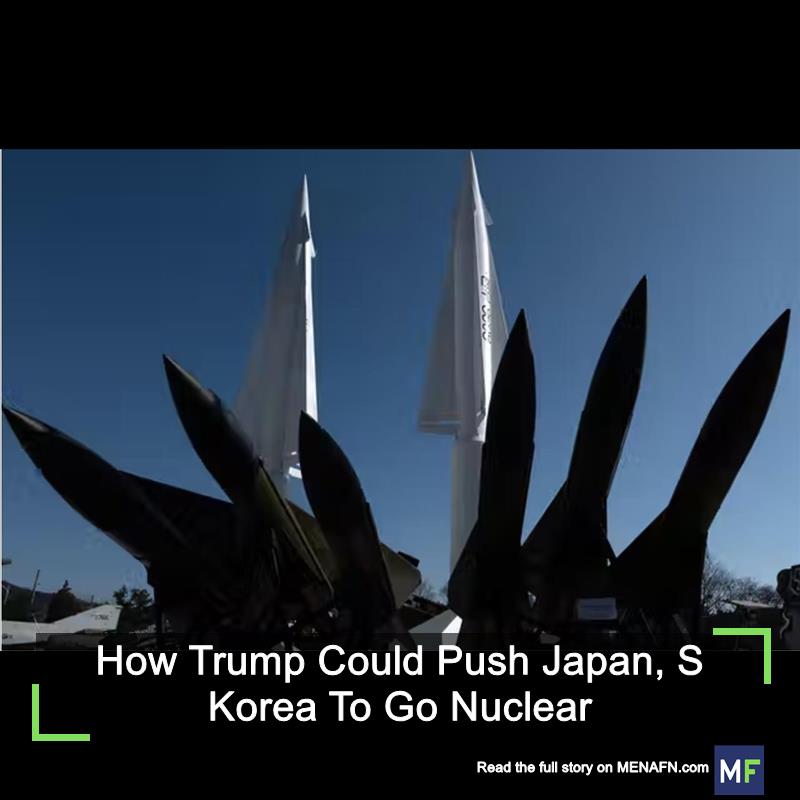














Comments
No comment